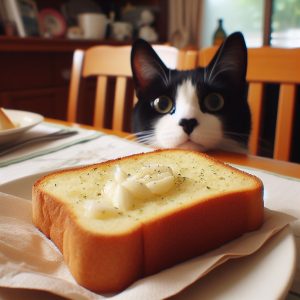Hot dogs are a popular grilled food enjoyed by humans, especially during summer cookouts and baseball games. But what about our feline friends? As a cat owner, you may have wondered, “Can cats eat hot dogs?”
The short answer is yes, cats can eat hot dogs in moderation. However, there are some important factors to consider before feeding hot dogs to cats. In this comprehensive guide, we will cover everything you need to know about feeding hot dogs to cats.
An Overview of Hot Dogs for Cats
Hot dogs are not inherently toxic to cats and do not contain anything that would be poisonous to them. The main ingredients in hot dogs are meat, fat, salt, preservatives, flavorings, and other additives.
Most cat owners agree that a small amount of hot dog will not harm your cat as an occasional treat. The key is moderation. Hot dogs should never make up a significant portion of your cat’s diet.
When feeding hot dogs to cats, it’s best to go for all-beef options and avoid hot dogs with artificial preservatives, spices, or heavy fillers. Look for low-sodium varieties.
Here are some key considerations when feeding hot dogs to cats:
- High in fat and salt – Too much can cause gastrointestinal upset.
- High in calories – Can quickly lead to weight gain.
- May contain garlic and onion – Toxic to cats.
- Added spices and flavorings – May cause stomach upset.
- Not nutritionally balanced – Lacks vitamins/minerals cats need.
While the occasional small piece of hot dog likely won’t harm your cat, there are healthier treat options to choose for cats. We’ll go over those later in this article.
Can Cats Eat Hot Dog Meat? Safety Concerns
The meat in hot dogs is safe for cats to eat, but there are some potential concerns to keep in mind:
High Sodium Content
The sodium content found in hot dogs can be problematic for cats if consumed in large amounts. Too much sodium can lead to hypertension, kidney problems, and stomach issues in cats.
Look for low-sodium or reduced-sodium hot dog varieties if feeding to your cat. Better yet, choose unseasoned cooked meat without preservatives.
Fatty Meat and Calories
Hot dogs contain a high amount of fat. While cats love the taste of fat, too much can lead to obesity and pancreatitis.
Obesity is a major health problem for domestic cats, so limiting high-fat foods is important. Just a few small bites of hot dog can provide a large portion of your cat’s calorie needs for the day.
Onions and Garlic
Many hot dogs contain onion and garlic powder flavoring. Onions and garlic are toxic to cats and dogs. They can cause oxidative damage to red blood cells leading to anemia.
Avoid feeding your cat hot dogs with any added onion or garlic, even in powdered form. Read ingredient labels carefully.
Processed Meat Concerns
There are some concerns over nitrates/nitrites used to preserve processed meats like hot dogs. Nitrates can be converted to nitrosamines in the body, which are carcinogenic.
While occasional small amounts are likely harmless, it’s best to limit processed meats for cats due to these potential cancer-causing compounds.
Artificial Preservatives
Lower quality hot dogs often contain artificial preservatives like BHA, BHT, and TBHQ which preserve the food during processing. Studies show mixed results on whether these preservatives are harmful to pets.
However, most veterinarians recommend avoiding artificial preservatives whenever possible. Check labels and choose preservative-free options.
Can Cats Eat Hot Dog Buns?
The bread or bun surrounding a hot dog is not toxic to cats. However, there are some digestion issues to keep in mind:
- Cats lack amylase – The enzyme needed to digest grains and carbs
- May cause gastrointestinal upset – Cramping, diarrhea, vomiting
- High in carbohydrates – Can lead to weight gain
- Low nutritional value – Lacks vitamins and minerals cats need
For these reasons, it’s generally best to avoid feeding the bun and stick to the meat. If you do share a small piece, monitor your cat for any digestive upset.
Try tearing off tiny pieces or soak the bread in milk to make it easier to digest. But don’t make a habit of feeding bread or buns to your cat.
How To Feed Hot Dogs To Cats Safely
Follow these tips for safely feeding the occasional hot dog treat to your cat:
- Choose all-beef hot dogs – Avoid poultry, pork, and meat blends
- Check the label – Ensure no onion, garlic, or harmful preservatives
- Pick low-sodium options – If buying packaged hot dogs
- Avoid the bun – Stick to the meat; carbs upset cat digestion
- Cut into small pieces – Remove casings; dice into bite-sized bits
- Limit to a few bites – No more than 1-2 times per month
- Supervise your cat – Make sure they chew thoroughly before swallowing
It’s also wise to introduce new foods slowly. Start with just a tiny nibble of hot dog to watch for any signs of an upset stomach or allergic reaction.
Increase portion sizes gradually over a few days. Discontinue feeding if you notice any diarrhea, vomiting, or skin irritation which could signal an individual allergy.
Healthier Treats and Foods for Cats
While the occasional small scrap of beef hot dog is safe for most cats, there are far healthier treat options you can choose to feed your feline friend. Here are some better alternatives:
Plain Cooked Meat
Lean cooked chicken, beef, turkey, or fish contain protein cats need minus the sodium, fat, and preservatives found in hot dogs. Opt for baked, boiled, or grilled without seasoning.
Commercial Cat Treats
Look for treats made with real meat, fish, or poultry as the first ingredient. Avoid artificial additives. Popular healthy options include Temptations, Fancy Feast broths, and PureBites freeze-dried treats.
Fruits and Veggies
Some cats enjoy bites of banana, melon, cooked sweet potato, steamed veggies, or frozen peas. These provide nutrients without excess calories.
Homemade Cat Treats
Make your own treats using cat-safe ingredients like canned fish, baby food meat, whole wheat flour, etc. There are many easy recipes online. Customize for your cat’s diet.
Balanced Cat Food
Ultimately a nutritionally complete commercial or homemade cat food should make up the bulk of your feline’s diet. Compare labels and aim for quality proteins.
Signs of Illness in Cats After Eating Hot Dogs
Hot dogs are not toxic to cats, but eating too much may cause an upset stomach. Monitor your cat for these symptoms:
- Diarrhea or loose stools
- Vomiting
- Decreased appetite
- Lethargy
- Gas or abdominal pain
If symptoms last more than 24 hours or your cat stops eating, contact your vet. Severe vomiting and diarrhea can quickly lead to dehydration which can be fatal if left untreated.
Also watch for signs of allergic reaction like hives, swelling, or itchy skin. Discontinue feeding the suspect food and call your vet immediately if you notice any severe reaction.
The Bottom Line: Are Hot Dogs Bad For Cats?
While the occasional small piece of beef hot dog is not toxic and will likely digest fine, it does not provide optimal nutrition for cats. Hot dogs are high in fat, sodium, and preservatives that have questionable long term effects.
For overall health, it’s best to skip the hot dogs and feed your cat a balanced commercial or homemade diet instead. Reserve hot dogs as a rare treat in very small portions.
When in doubt, check with your veterinarian about the safety of any human foods like hot dogs that you wish to share with your cat. Every feline has unique nutritional needs and health conditions to consider.
With some common sense precautions, the rare taste of cooked beef hot dog meat should not harm your cat. But a steady diet of processed meats is not advised. Ultimately, a nutritious cat food tailored to your pet’s needs is the best way to feed cats for optimal health and longevity.


